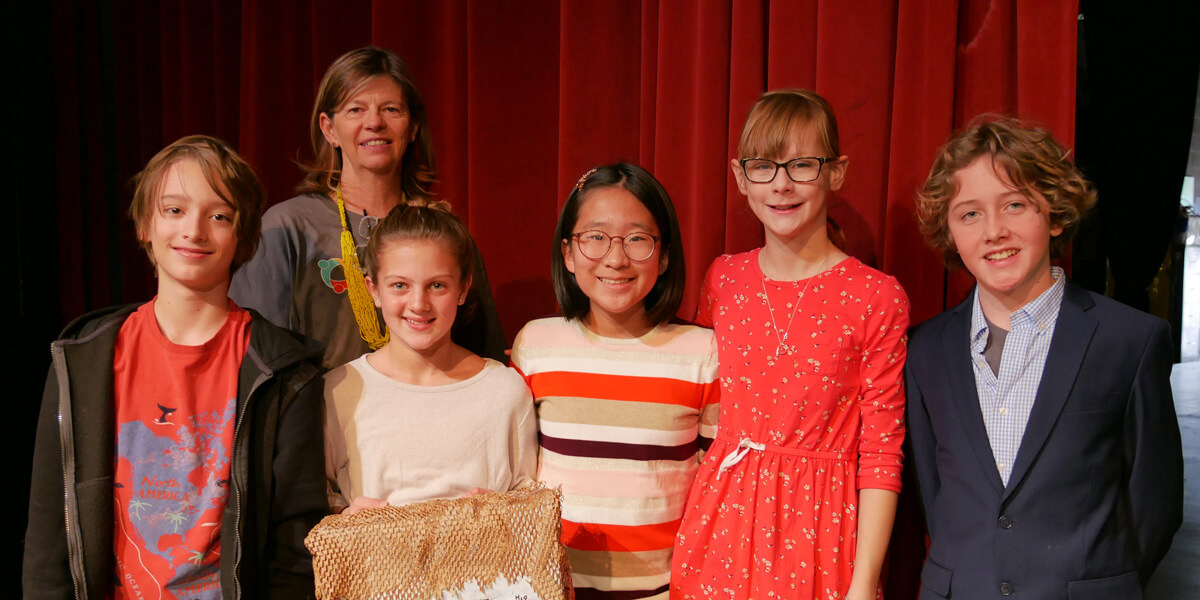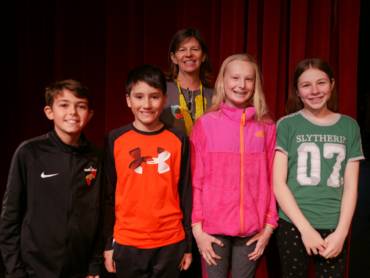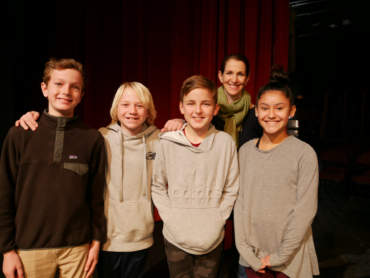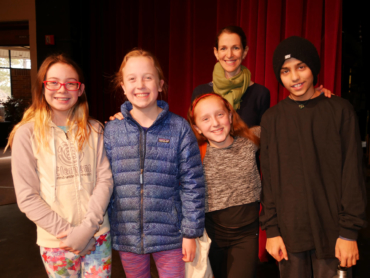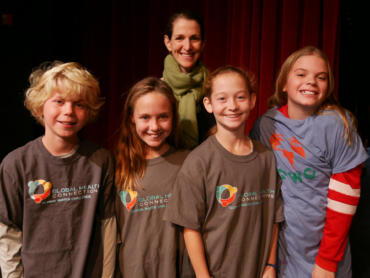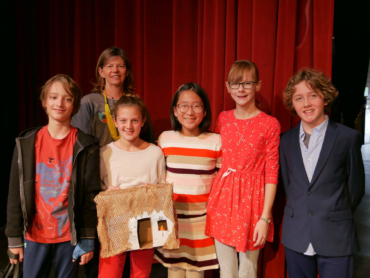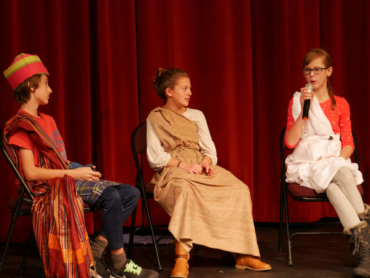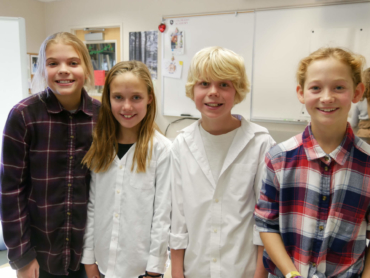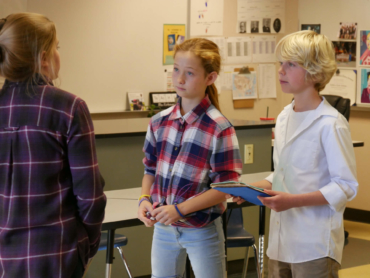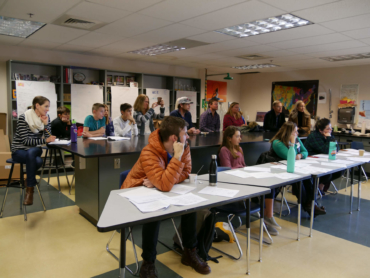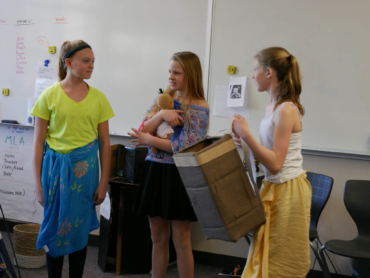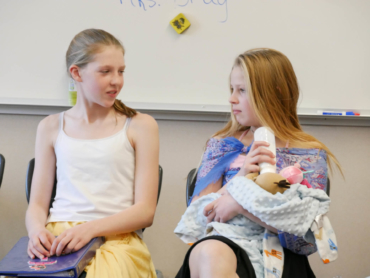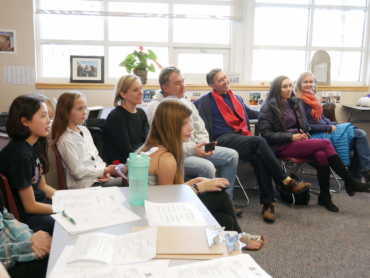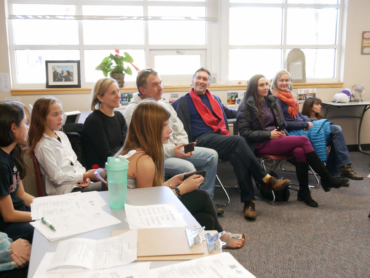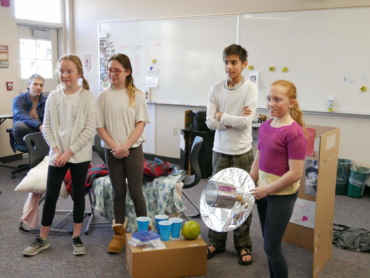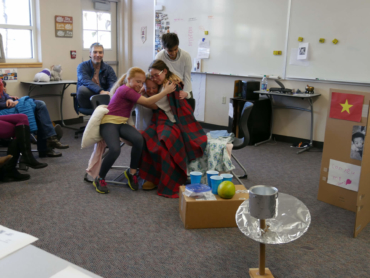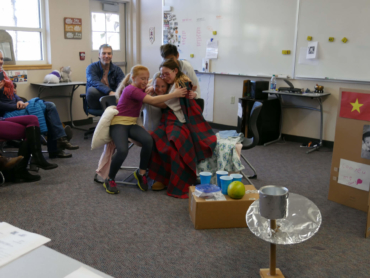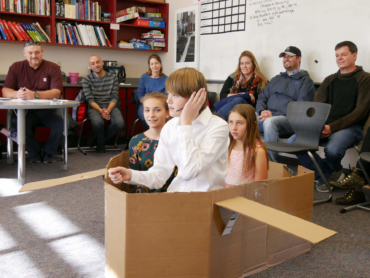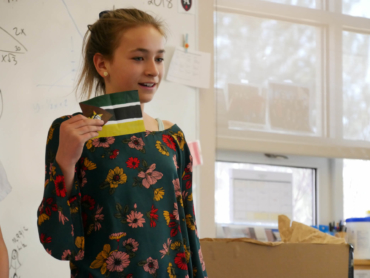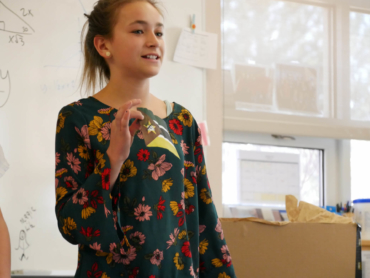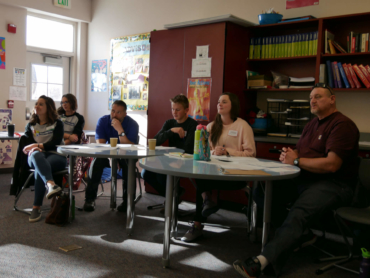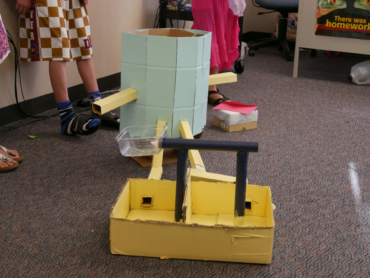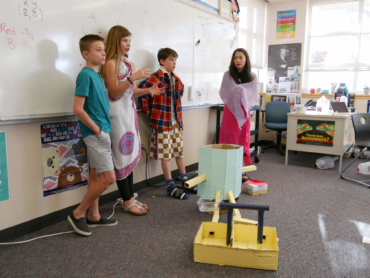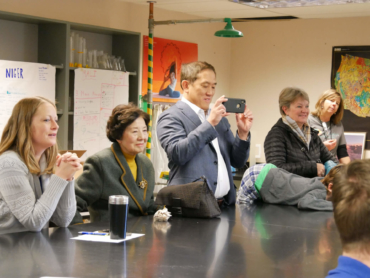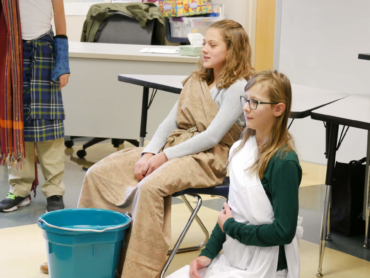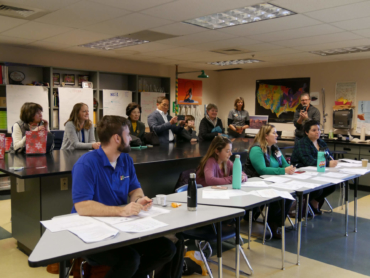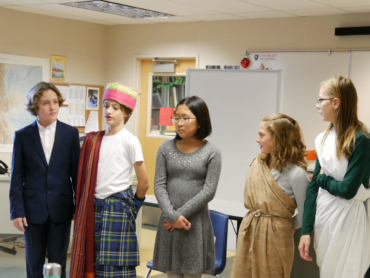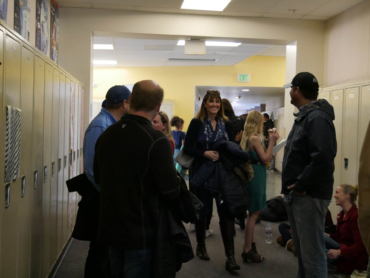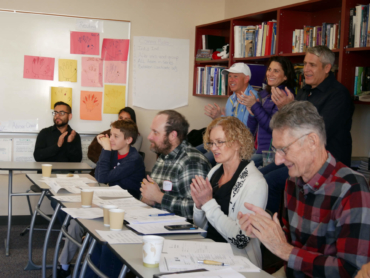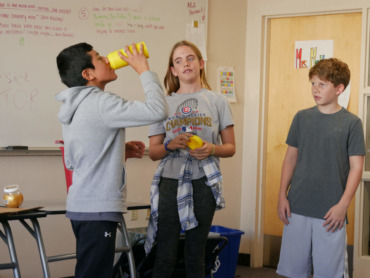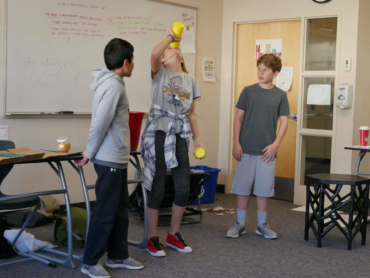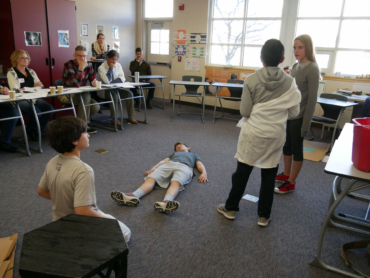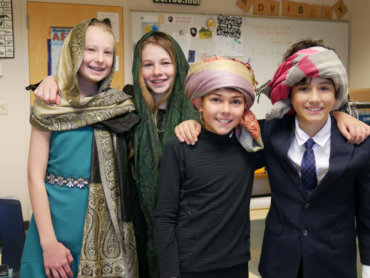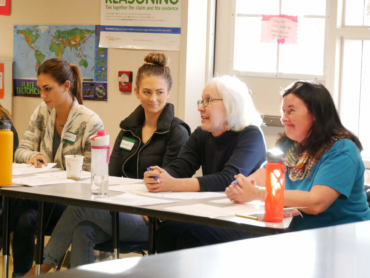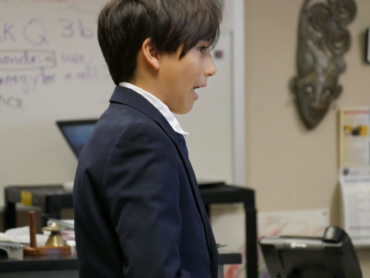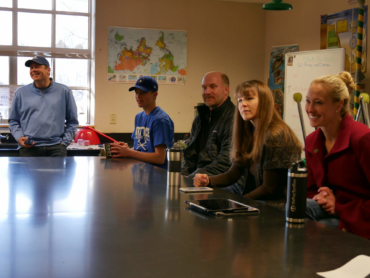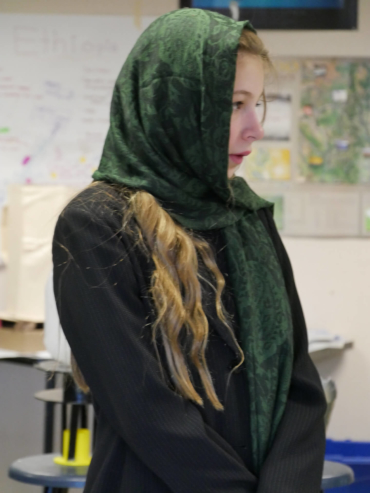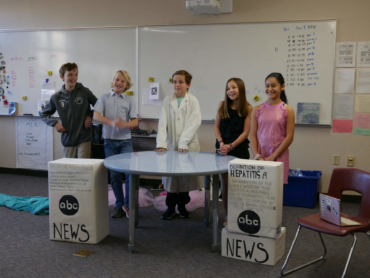You could travel the globe without ever leaving Colorado Academy’s Middle School if you were lucky enough to attend the 14th Annual Sixth Grade Global Water Challenge. As students journeyed from Mozambique to Malawi, from Madagascar to Mali, with stops in Uganda, Afghanistan, Haiti, Ethiopia, and Vietnam among others, they became change makers, passionately invested in helping countries that otherwise might just be a pin on a world map. Everywhere they traveled, students focused on one problem—water. Ultimately, they invented myriad solutions to the problems many countries have accessing, treating, and distributing clean, sustainable water.
The Global Water Challenge was originally developed by Blair Gifford, PhD, Professor of Global Health Management at CU Denver | CU Anschutz, and has been spearheaded at CA by Middle School Science teachers Sue Counterman and Erin Galvin. The challenge is based on the United Nations Sustainable Development Goal 6: “Ensure availability and sustainable management of water and sanitation for all.” All 75 Sixth Grade students work on four- or five-person teams, choose countries, and immerse themselves in the water issues faced by people in that country.
From research to drama
With research in hand, the students develop 10-minute skits to illustrate the challenges and solutions for water issues in their country. The skits demand costumes, make-up, props, even audio of a baby crying. A total of 17 teams presented skits twice to 6 panels of judges. The 31 volunteer judges come from varying backgrounds, including medicine, nursing, and international sustainable water experience. Some are former Sixth Grade participants. “The judges love creative story-telling in the student skits,” Counterman says. “It shows that the students can have fun while they are learning.”
The Global Water Challenge provides an education not just for the students. Audience members learned about Niger from a Galvin team which presented a television newscast focusing on Nigerien children who obtain water from contaminated sources and thereby contribute to the spread of Hepatitis A and other illnesses in the country. The Counterman Afghanistan team explained how the heavy labor of finding water often falls to women in the country “who can’t speak up for themselves,” but they faced tough questions from judges about their solution, which involved solar panels. They were ready with an answer: “An invention is only as good as the willingness of the local government.”
The Galvin Ethiopia team talked knowledgably about the difference in water conditions between urban and rural parts of the country. Their solution was an affordable water bottle with a filter—and they were ready with answers when the judges asked them whether the price point of the filters made them practical.
With a quick costume change, the Counterman Ethiopia team transformed seamlessly from villagers struggling with water issues into television broadcasters on the “World Water Channel.” Meanwhile, in another classroom, the Galvin Tanzania team demonstrated their design for a vacuum that cleans human waste from the ground, composts and sanitizes it, and transforms it into fertilizer. “We researched a lot of prototypes,” they acknowledged to the judges. And in yet another room, the Galvin Vietnam team showed their design for a desalination process to create a new source of water for the country.
Judges critique and students hone skills
All the teams faced questions from the judges, who quizzed students on the practicality, economics, sustainability, and political implications of the water solutions they demonstrated in their skits. “The Question and Answer time is my favorite part of the Global Water Challenge,” Counterman says. “Sometimes I even cry as I watch, because the students have worked so hard, learned so much, and at the end they wow me by how eloquent they are.”
In the course of creating their Global Water Challenge skits, student teams learn firsthand about a real-life challenge in many countries—finding water. They practice good team membership using LARC (leadership, agreement, responsibility, and communication) as they:
- Study local and global water issues, including scarcity, pollution, and security
- Develop research skills
- Learn directly from local health professionals who judge the competition
- Collaborate on teams
- Practice critical thinking and problem solving
- Use design thinking and science engineering practices
- Develop an innovator’s mindset
Ranking first among the competing teams was the Counterman Ethiopia team of Anna Baumbusch, Jack Ege, Emily Johnson, Max Newcomb, and Alyssa Song. Also placing were these teams:
- Galvin Malawi: Ella Firman, Celina Frenz, Ollie Oertel, Emma Smart
- Galvin Vietnam: Everest Akuthota, Storm Bearley, Leila Hollis, Gabby Miranda
- Counterman Afghanistan: Joaquin LeWand, Mattias Pereira, Margie Timmers, Tierney Williams
But it’s easy to argue that everyone who participated in and attended this event were winners, coming away with new understanding of what First World countries often take for granted. Again and again, students echoed the words that Leah Blake told the judges: “I am just so super grateful that I have clean water.”
To download a full-size image, hover on the photo and right click. Select “Save Link As” and choose a location on your computer. At this time, you cannot download the images on a mobile device.
